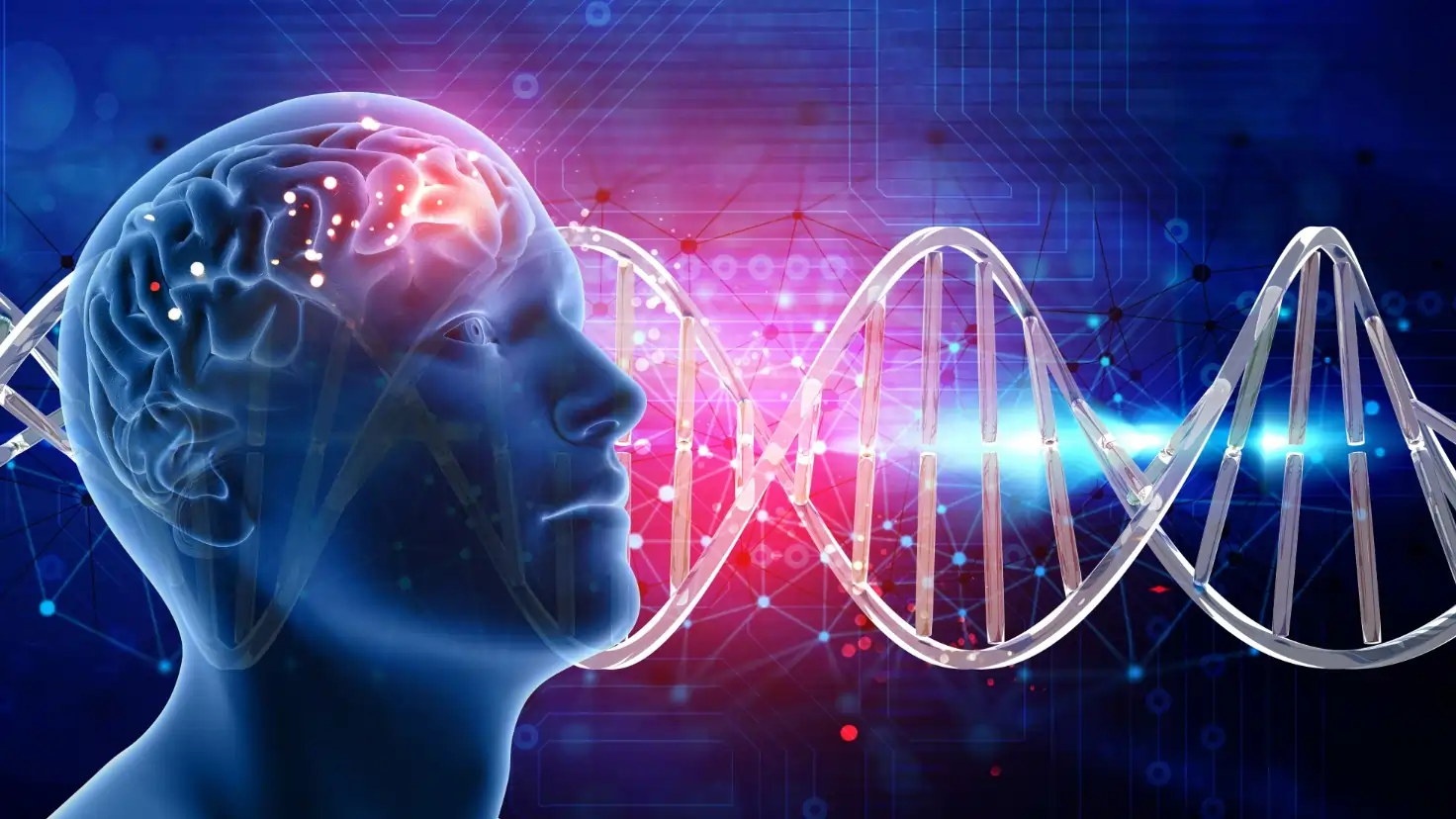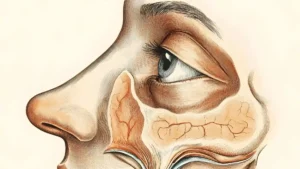Gut Microbiome’s Role in Mental Health: The Science Behind Your Second Brain
Introduction
The gut microbiome’s role in mental health has revolutionized our understanding of how physical and mental well-being connect. Your digestive system houses trillions of microorganisms that directly communicate with your brain through what scientists call the gut-brain axis. This remarkable connection means that the bacteria living in your intestines can actually influence your mood, anxiety levels, and overall mental health.
Recent research shows that about 95% of your body’s serotonin – the “happiness hormone” – is produced in your gut, not your brain. This discovery explains why digestive problems often accompany mental health issues and why improving gut health can lead to better emotional well-being. The gut microbiome contains over 1,000 different species of bacteria, and the balance between good and harmful bacteria directly affects your mental state.
Studies consistently demonstrate that people with depression and anxiety often have different gut bacteria patterns compared to mentally healthy individuals. This connection isn’t just coincidental – the gut microbiome actively produces neurotransmitters, influences inflammation levels, and sends direct signals to your brain through the vagus nerve. Understanding this relationship opens up exciting new possibilities for treating mental health conditions through dietary changes, probiotics, and lifestyle modifications.
How the Gut-Brain Communication System Works
The gut microbiome’s role in mental health operates through several sophisticated communication pathways that connect your digestive system directly to your brain. The primary route is the vagus nerve, which acts like a superhighway carrying signals between your gut and brain in both directions. This nerve allows your gut bacteria to send immediate messages that can influence your mood, stress levels, and emotional responses within minutes.
Your gut bacteria also communicate through the production of important brain chemicals called neurotransmitters. These tiny organisms manufacture gamma-aminobutyric acid (GABA), which helps control anxiety and fear, dopamine that affects motivation and pleasure, and glutamate that influences learning and memory. When your gut bacteria are balanced, they produce optimal levels of these mood-regulating chemicals.
The immune system serves as another crucial communication channel in the gut-brain connection. Your intestinal lining contains about 70% of your immune system, and gut bacteria directly influence inflammation levels throughout your body, including your brain. Harmful bacteria can trigger inflammatory responses that contribute to depression and anxiety, while beneficial bacteria help reduce inflammation and protect mental health.
Hormonal pathways also play a vital role in this communication network. Your gut bacteria influence the hypothalamic-pituitary-adrenal axis, which controls your stress response system. When gut bacteria are imbalanced, your body may produce excess stress hormones like cortisol, leading to chronic anxiety and mood disorders. Additionally, gut bacteria produce short-chain fatty acids that can cross the blood-brain barrier and directly affect brain function, influencing everything from memory formation to emotional regulation.
Mental Health Conditions Linked to Gut Imbalances
Research has identified strong connections between specific mental health conditions and disrupted gut microbiomes. Depression shows particularly clear links to gut bacteria imbalances, with studies finding that people with major depressive disorder often have reduced levels of beneficial bacteria like Faecalibacterium and Coprococcus, which produce mood-supporting compounds. These bacteria manufacture butyrate, a short-chain fatty acid that helps maintain brain health and emotional stability.
Anxiety disorders also correlate strongly with gut microbiome disruptions. People experiencing chronic anxiety frequently show elevated levels of harmful bacteria and reduced diversity in their gut microbiome. The gut bacteria Prevotella has been specifically associated with social anxiety, while reductions in Bifidobacterium bacteria, which produce calming GABA neurotransmitters, are common in anxiety sufferers.
Autism spectrum disorders demonstrate some of the most dramatic gut-brain connections, with up to 70% of individuals with autism experiencing significant digestive issues. Research shows that children with autism often have markedly different gut bacteria compositions, with reduced beneficial bacteria and overgrowth of harmful species. These imbalances may contribute to behavioral symptoms and sensory processing difficulties.
Other mental health conditions showing gut microbiome connections include bipolar disorder, where mood swings correlate with fluctuating gut bacteria levels, and schizophrenia, where specific bacterial strains may influence cognitive symptoms. Even post-traumatic stress disorder has been linked to gut bacteria changes, with stress responses affecting digestive health and creating cycles where poor gut health worsens trauma symptoms.
The impact of social media on mental health may also involve gut bacteria, as stress from digital overwhelm can disrupt the microbiome through elevated cortisol levels. This creates a cascade where social anxiety and depression worsen gut health, which in turn makes it harder to cope with stress and social pressures.
Evidence from Probiotics and Mental Health Studies
Scientific evidence increasingly supports the gut microbiome’s role in mental health through clinical trials examining probiotics’ effects on mood and anxiety. A groundbreaking 2023 study published in JAMA Psychiatry found that adults with major depression who took a 14-strain probiotic supplement alongside their regular antidepressants showed significantly greater improvements in depression and anxiety scores compared to those taking placebo pills.
Multiple randomized controlled trials have demonstrated that specific probiotic strains can reduce symptoms of depression and anxiety in both healthy individuals and those with diagnosed mental health conditions. Lactobacillus and Bifidobacterium strains show particularly promising results, with participants reporting decreased anxiety, improved mood, and better stress management after 4-8 weeks of supplementation.
Recent research using daily mood tracking revealed that probiotics can reduce negative feelings more effectively than previously thought. This approach showed clearer benefits than standard psychological questionnaires, suggesting that gut bacteria influence day-to-day emotional experiences in subtle but meaningful ways. People who were more sensitive to stress and risk-averse showed the greatest improvements when taking probiotics.
Studies have also found that fermented foods containing natural probiotics can support mental health. Research participants who increased their consumption of yogurt, kefir, sauerkraut, and other fermented foods showed improved mood and reduced anxiety levels. These foods provide diverse bacterial strains that work together to support both digestive and mental health.
However, researchers emphasize that while probiotics show promise as complementary treatments, they shouldn’t replace conventional mental health care. The most effective approach appears to combine probiotics with standard treatments like therapy and medication, creating a comprehensive strategy that addresses both brain chemistry and gut health for optimal mental wellness.
Practical Ways to Support Your Gut-Brain Connection
Improving your gut health to support mental wellness involves several practical strategies that you can implement immediately. Dietary changes represent the most powerful tool for optimizing your gut microbiome’s role in mental health. Focus on eating diverse, fiber-rich foods that feed beneficial bacteria, including vegetables, fruits, whole grains, legumes, nuts, and seeds. Aim for 25-38 grams of fiber daily from varied sources to promote bacterial diversity.
Incorporate fermented foods into your daily routine to introduce beneficial bacteria naturally. Include yogurt with live cultures, kefir, sauerkraut, kimchi, miso, tempeh, and kombucha in your meals. These foods provide probiotics while also offering prebiotic fibers that help existing good bacteria thrive. Start with small portions and gradually increase to avoid digestive discomfort.
Stress management directly impacts gut health and mental wellness. Chronic stress disrupts the gut microbiome and increases harmful bacteria while reducing beneficial strains. Practice stress-reduction techniques like deep breathing, meditation, regular exercise, and adequate sleep. Even simple activities like walking in nature or listening to music can help maintain a healthy gut-brain connection.
Limit gut-disrupting substances including processed foods, excessive sugar, artificial sweeteners, and unnecessary antibiotics. These can harm beneficial bacteria and promote inflammation. When antibiotics are medically necessary, consider taking probiotics during and after treatment to help restore bacterial balance.
Stay adequately hydrated by drinking 6-8 glasses of water daily, as proper hydration supports healthy digestion and helps maintain the gut’s protective mucus layer. Regular physical activity also benefits gut health by increasing bacterial diversity and reducing inflammation. Aim for at least 30 minutes of moderate exercise most days of the week.
Consider probiotic supplements if you’re dealing with specific mental health challenges, but choose high-quality products with multiple strains and consult healthcare providers for personalized recommendations. Remember that consistency matters more than perfection – small, sustainable changes to support your gut health can lead to meaningful improvements in mood and mental clarity over time.
Frequently Asked Questions
Q: How quickly can improving gut health affect mental health?
A: Some people notice mood improvements within 1-2 weeks of dietary changes, while more significant mental health benefits typically appear after 4-8 weeks of consistent gut health practices. The gut microbiome can begin changing within 24 hours of dietary modifications, but lasting mental health improvements usually require sustained efforts over several weeks.
Q: Can probiotics replace antidepressant medications?
A: No, probiotics should never replace prescribed mental health medications without medical supervision. Research shows probiotics work best as complementary treatments alongside conventional therapy and medication. Always consult your healthcare provider before making changes to mental health treatment plans.
Q: Which foods are worst for gut health and mental well-being?
A: Processed foods high in sugar and artificial additives, fried foods, excessive alcohol, and foods with artificial sweeteners can disrupt gut bacteria and negatively impact mental health. These foods promote harmful bacteria growth and increase inflammation that affects brain function.
Q: Are there specific probiotic strains that work better for mental health?
A: Research indicates that Lactobacillus and Bifidobacterium strains show the most promise for mental health benefits. Multi-strain probiotics containing 8-14 different bacterial species appear more effective than single-strain supplements, but individual responses vary significantly.
Q: How does stress affect gut health and mental wellness?
A: Chronic stress directly disrupts gut bacteria balance by increasing harmful bacteria and reducing beneficial strains. This creates a cycle where poor gut health makes it harder to cope with stress, while ongoing stress further damages the microbiome. Managing stress is crucial for maintaining gut-brain health.
Q: Can children benefit from gut health approaches for mental wellness?
A: Yes, children can benefit from gut-healthy diets and stress management, but probiotic supplements should only be given under medical guidance. Focus on providing diverse, fiber-rich foods and fermented foods appropriate for their age while maintaining consistent sleep schedules and stress reduction.
Conclusion
The gut microbiome’s role in mental health represents one of the most exciting frontiers in both medicine and psychology. The scientific evidence clearly demonstrates that your gut bacteria don’t just influence digestion – they actively participate in regulating your mood, anxiety levels, stress responses, and overall mental well-being through direct communication with your brain.
This understanding fundamentally changes how we approach mental health treatment and prevention. Rather than viewing mental health as purely a brain-based concern, we now recognize that supporting gut health through diet, probiotics, stress management, and lifestyle changes can significantly improve psychological symptoms and emotional resilience.
The practical implications are encouraging because many gut health improvements are accessible and natural. Simple changes like eating more diverse plant foods, including fermented foods in your diet, managing stress effectively, and maintaining regular sleep patterns can create meaningful improvements in both digestive and mental health. These approaches work best when combined with conventional mental health care rather than replacing it.
As research continues to uncover new aspects of the gut-brain connection, we’re likely to see more personalized approaches to mental health that consider individual microbiome profiles. This holistic understanding offers hope for more effective, comprehensive treatments that address both the biological and psychological aspects of mental wellness.
The relationship between your gut microbiome and mental health reminds us that true wellness involves caring for your whole body, not just addressing isolated symptoms. By nurturing your gut health through mindful eating, stress reduction, and healthy lifestyle choices, you’re investing in both your digestive wellness and your mental resilience for years to come.




